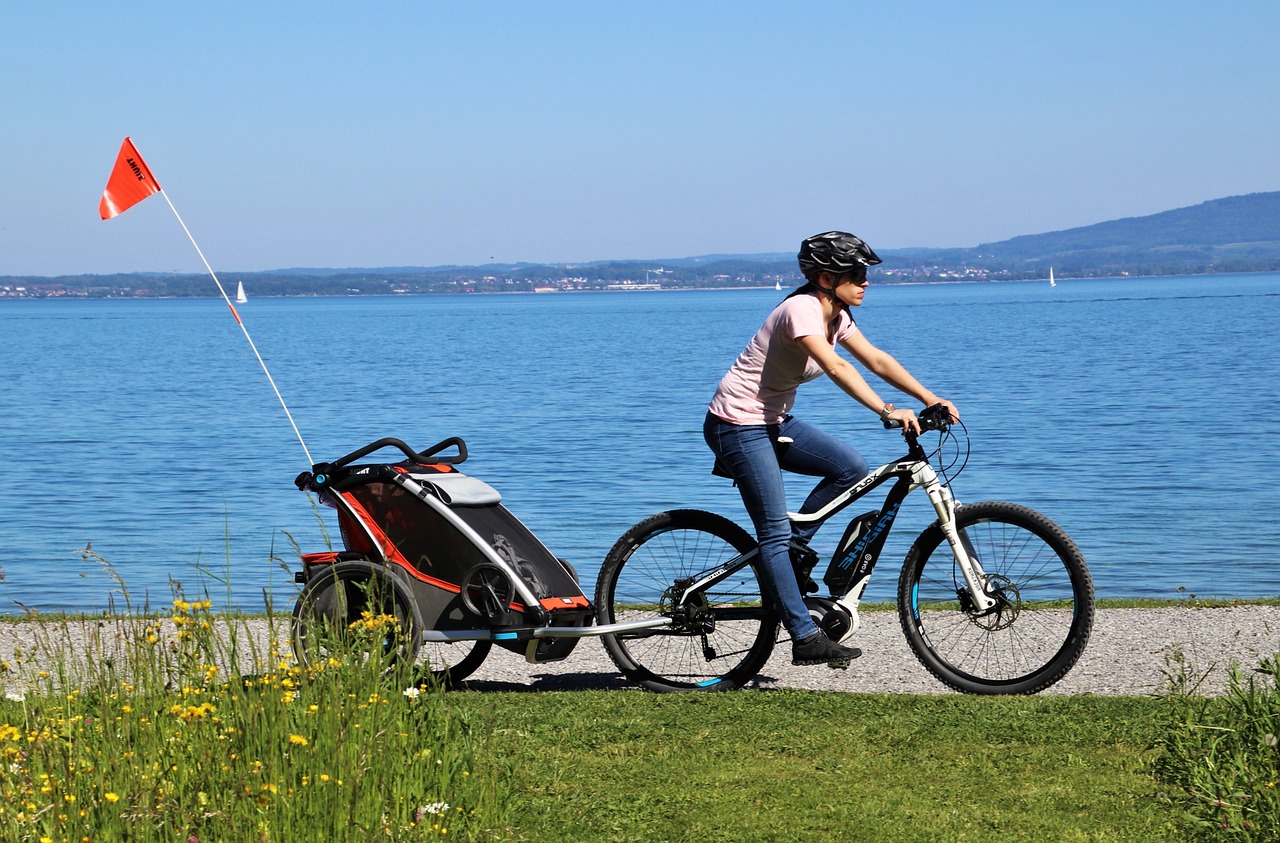The ideal purpose of a bike trailer is to transport passengers, goods, children, or animals. They are a wonderful choice if your load is heavier than what a pannier or frame-mounted bag is designed to support.
The best bicycle trailer for you will vary depending on your unique requirements and tastes.
There are several factors to consider when choosing a bicycle trailer. The following are some of the most important:
1. Purpose:
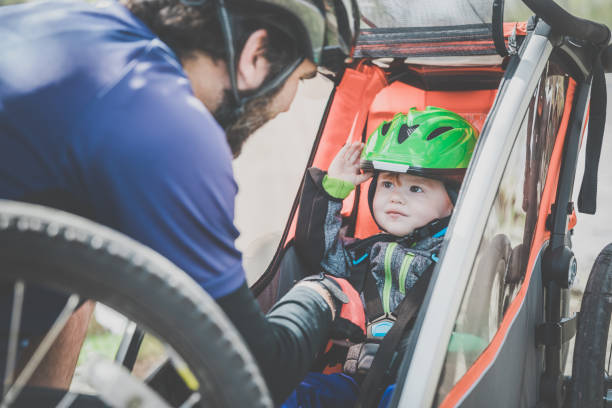
Decide what the trailer’s primary function is. Do you use it to transport children, animals, groceries, or camping equipment? We suggest a multipurpose trailer that can be utilised for many tasks. For instance, building supplies, furniture, and appliances can all be transported with a utility trailer. They are excellent for moving camping or landscaping supplies. There are trailers made expressly to haul bikes and ATVs, or to go camping if you’re searching for something more specialised. For various uses, many trailers are created.
2. Capacity:
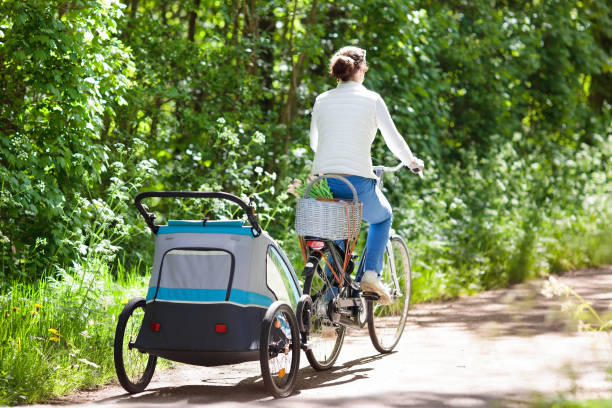
Think about how many people or how much cargo you intend to transport. You should always examine the weight and seating capabilities of a trailer before buying it.
You should also think about whether the additional stuff you plan to bring on your excursion will significantly increase your weight. Is it safe to cycle with the extra weight? Before choosing a choice, be certain you are aware of the answers to these questions.
3. Material:
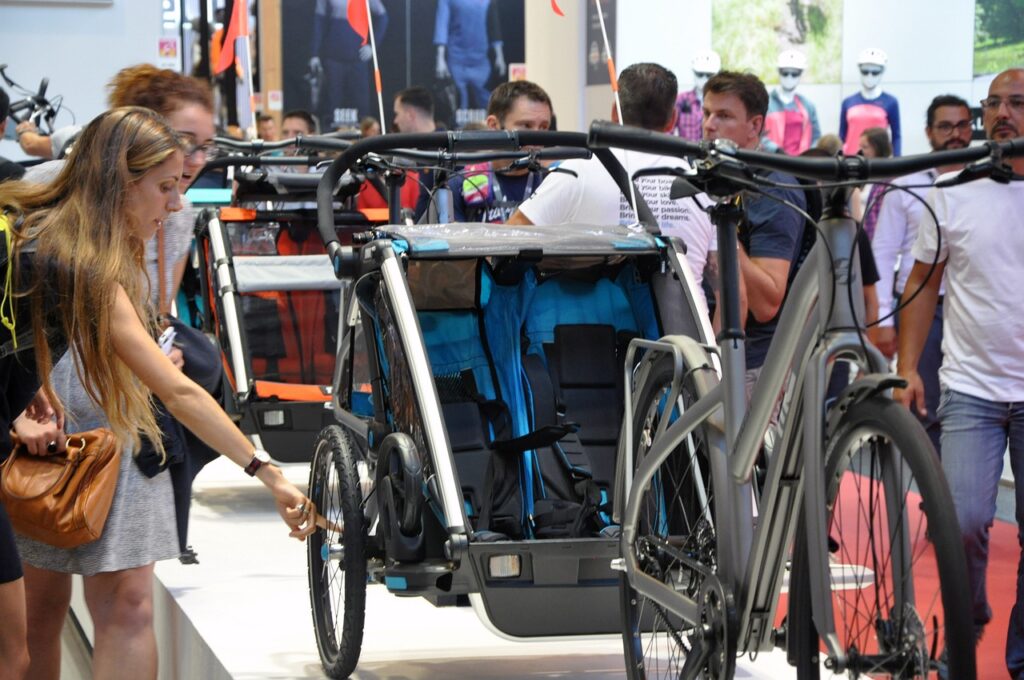
It will be simpler to haul a lightweight trailer behind your bike if it is constructed of materials like aluminium. Make sure the trailer is both strong enough to endure difficult terrain and heavy use, yet lightweight enough to be towed easily by your bike. Try to find high-quality trailers built of steel or aluminium. Remember that a steel trailer is heavier than an aluminium trailer because you’ll be towing that extra weight around with you wherever you go.
4. Durability and Quality:
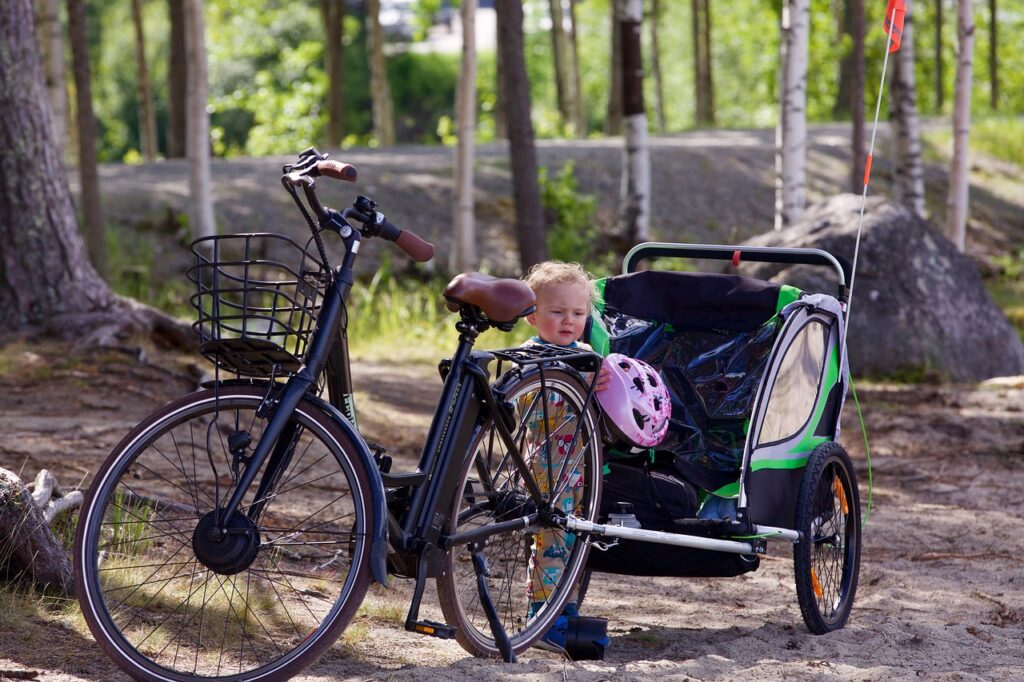
Prioritising quality and durability is vital when buying a trailer. A well-constructed trailer with high-quality components will last longer and be more dependable. In addition to having strong frames made of materials like steel or aluminium and cloth that can withstand wear and tear, look for trailers. Reliable wheels are also essential, especially if you want to use the trailer on tough terrain or for extended distances. Read customer testimonials and research the reputation of the manufacturer to gauge a trailer’s quality. You can evaluate the trailer’s overall performance and dependability using this.
5. Wheels:
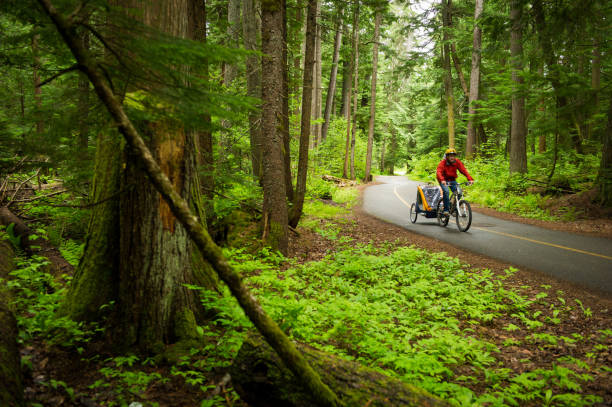
Pick a trailer that can handle rocky terrain and has substantial, robust wheels. Bicycle wheels with spokes offer the highest stability and manoeuvrability. Be ready for anything because you never know where your watercraft adventures may take you. You wouldn’t want your wheels to be unable to handle the terrain leading to the water once you arrive at the portage access.
6. Hitch:
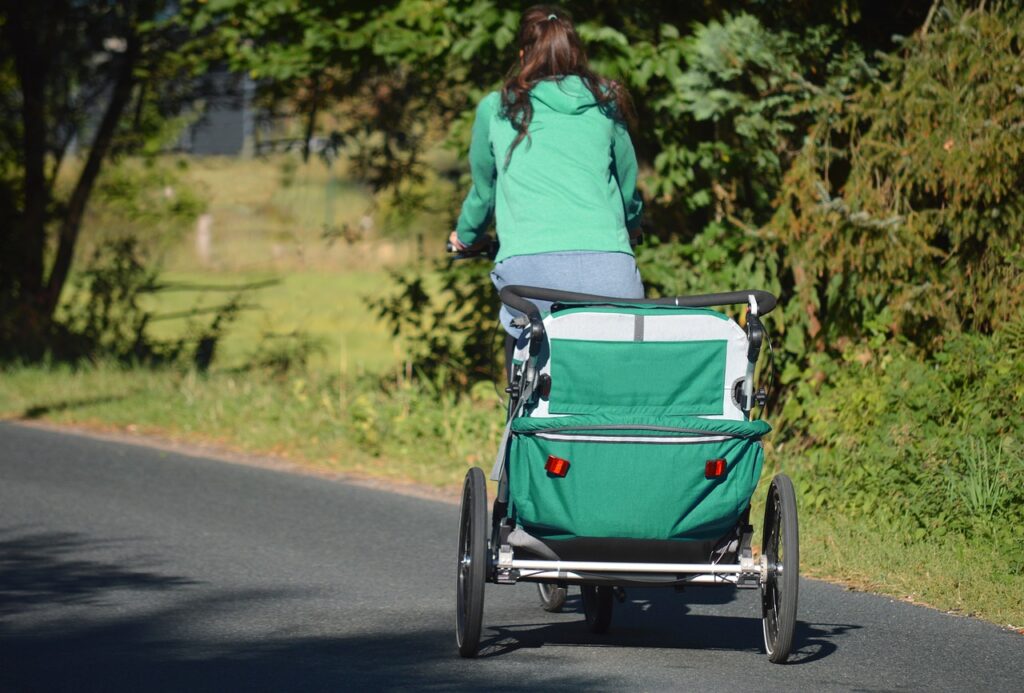
Double-check that the hitch style is suitable for your bicycle. To make sure the trailer can be hitched to your bike, check the hitching mechanism. Rear axle, seat post, and frame-mounted hitches are examples of common hitch designs. Make sure the hitch on the trailer is stable and simple to attach and detach.
A hitch that is installed on the axle will also function, but be sure to move a little more slowly to avoid tipping your trailer.
7. Budget:
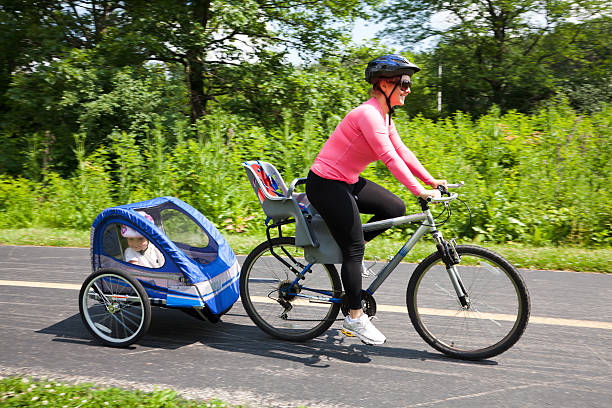
Budget planning is essential while looking for a bicycle trailer. This will assist you in reducing your selection and locating a trailer that satisfies your requirements and your budget. Spend some time researching other trailers and contrasting their costs, features, and reviews. Prioritising quality and features that match your demands is just as crucial as staying within your budget. While a trailer that is too pricey can contain amenities you don’t need, a trailer that is too inexpensive might not be dependable or long-lasting. You can make sure you receive the best value for your money by striking a balance between price and quality.
8. Terrain:
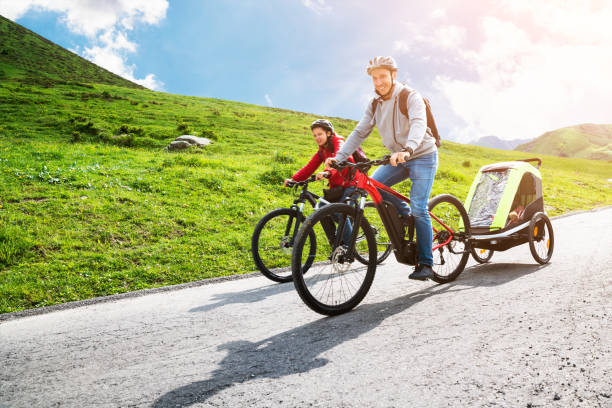
The sort of terrain you’ll be riding on is an important consideration when choosing a bicycle trailer. It’s crucial to pick a trailer with strong tires that can handle harsh terrain if you intend to ride on uneven surfaces or off-road. A trailer with suspension will make the journey for your child or luggage smoother by absorbing the shock of bumps and uneven terrain. Larger, more durable tires on trailers will also be better able to withstand rocky terrain and offer higher traction. A trailer with smaller tires and less suspension may be adequate if you plan to ride mostly on smooth terrains, such as paved bike lanes or roads.
Conclusion:
You can test out various trailers in person at a nearby bike shop to see which one is ideal for you. The bike shop’s personnel may also assist you in selecting a trailer depending on your unique requirements, such as cargo capacity, weight restriction, and convenience of use. They can also offer you advice on how to connect and disconnect your bike’s trailer. In the end, choosing the appropriate trailer for your needs might save you time and money by ensuring that you visit a nearby bike shop.
We hope you found this article useful.

